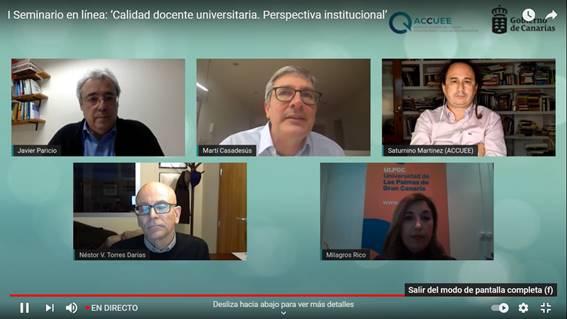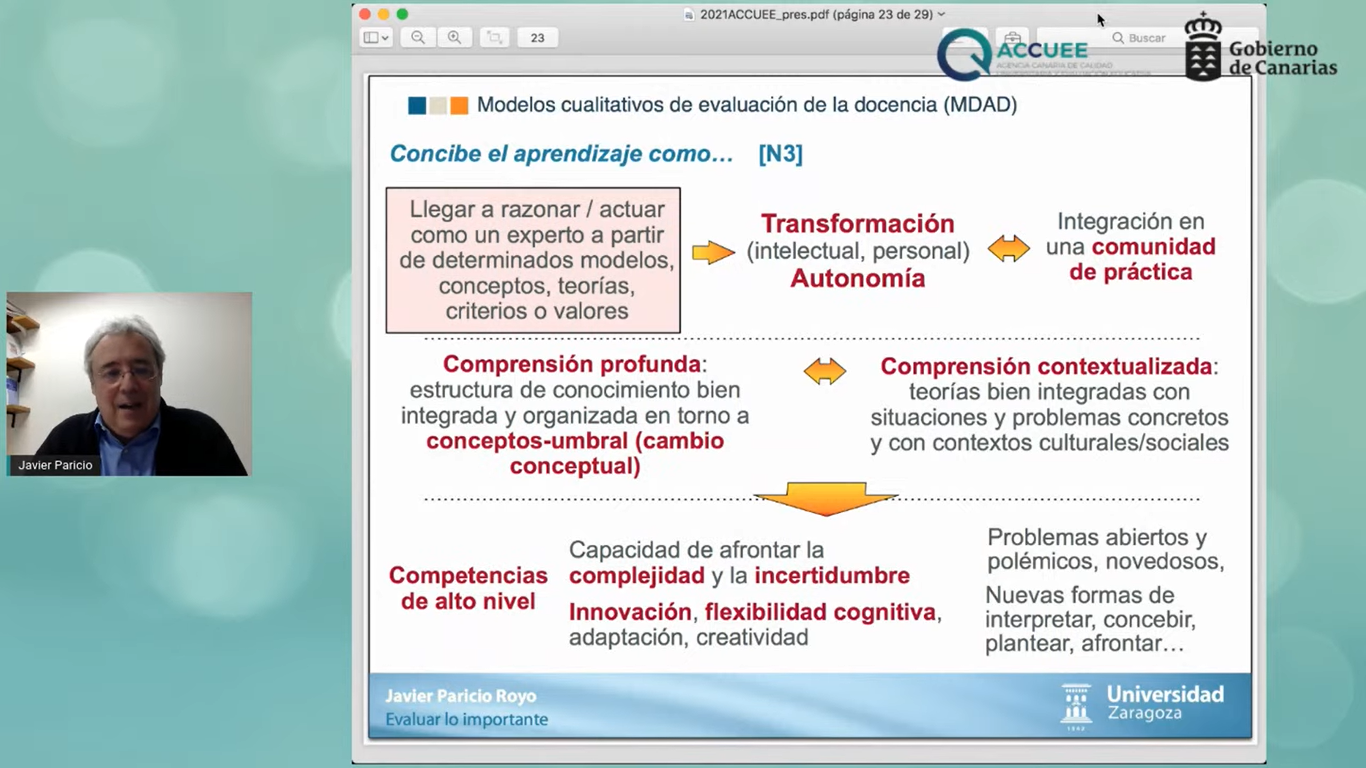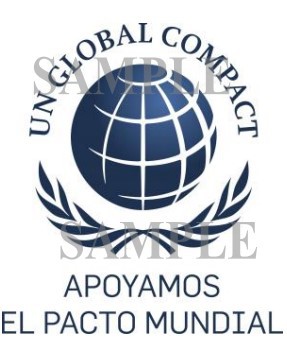On Monday, February 22, the ACPUA attended the I Online Seminar: 'University Teaching Quality. Institutional perspective' organized by the Canarian Agency for University Quality and Educational Evaluation (ACCUEE).
In this event, moderated by Martí Casadesús Fa, Director of the Agency for the Quality of the University System of Catalonia (AQU Catalunya), participated: Javier Paricio Royo, professor of the Faculty of Education of the University of Zaragoza and Member of the State Network of University Teaching (RED_U), who developed his paper "Evaluate what is important" during which he presented his Qualitative Model for the evaluation of teaching (MDAD). This model seeks to evaluate the quality of teaching in the classroom, moving away from the current models based on the simple quantitative accumulation of merits. Milagros Rico Santos, Vice-Rector for Quality at the University of Las Palmas de Gran Canaria (ULPGC), wanted to draw attention to some of the difficulties that arise when you want to implement an evaluation model of this type: unclear guidelines, costly software applications, getting representative surveys of students, union negotiation if it affects working conditions and economic remuneration, the last step focused exclusively on research on higher education.
Néstor Vicente Torres Darias, Vice-Rector for Teaching Innovation, Quality and Anchieta Campus of the University of La Laguna (ULL), focused his speech on the characteristics that a good teaching evaluation should have: it should be formative in nature, be based on both quantitative and qualitative elements that are well contrasted and be subsidiary to a teaching-learning model. He also highlighted other important aspects to be taken into account when implementing a teaching evaluation, such as the need for all teachers, including new teachers, to be able to pass these evaluations; the surveys must be extended to all students, due to their importance; the model must be simple to put into practice and, above all, it must be a voluntary program so that it does not become distorted and teachers do not feel it as a threat. Closing the seminar, José Saturnino Martínez García, Director of the Canary Islands Agency for University Quality and Educational Evaluation (ACCUEE), concluded by explaining how evaluating by focusing too much on one model can lead us to disassociate ourselves from the heterogeneous reality of universities, as well as the problems that a qualitative evaluation poses when it comes to avoiding appeals and challenges.













